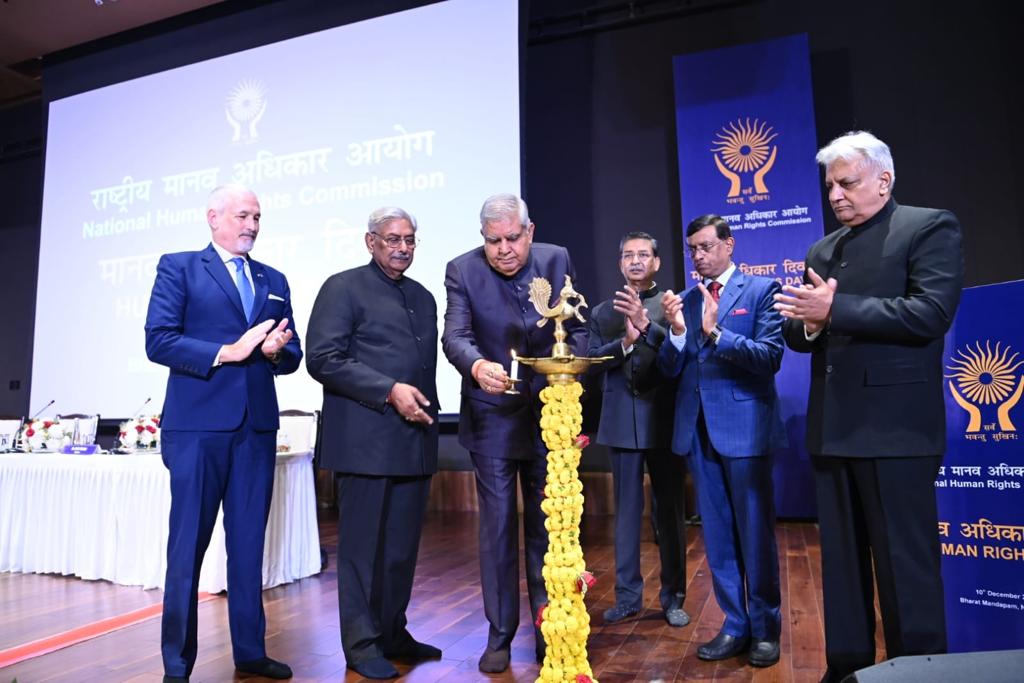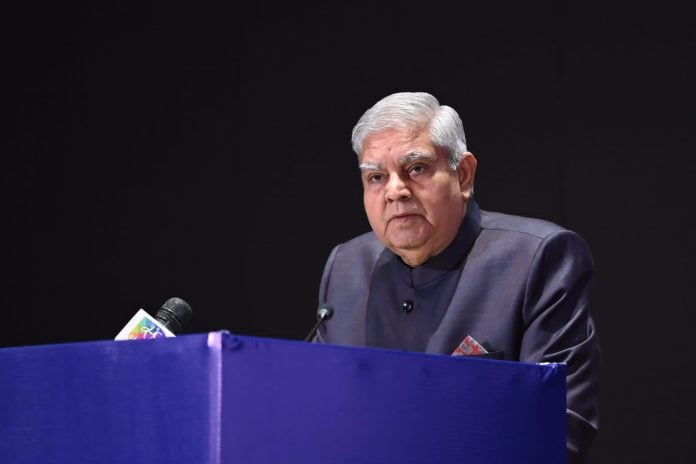Vice-President Jagdeep Dhankhar on Sunday said that human rights blossomed in a society where there was equality of law and access to justice for all.
Delivering the keynote address at the Human Rights Day celebrations at Bharat Mandapam in New Delhi, the Vice-President said that India, which was home to one-sixth of humanity in the world, has become a global role model on respecting and safeguarding human rights of all its citizens.
The Vice-President said human rights formed the very cornerstone of the democracy, adding that the respect for human rights was embedded in the nation’s civilisational ethos and Constitution.
He said there could be no better example of human rights getting highest respect in India than a tribal woman becoming the President of this country and the son of a farmer serving as the Vice-President.
Expressing his displeasure over the country being treated unfairly by some global entities, Dhankhar asked them to delve deep into the nation’s performance on various aspects of human rights and not merely scratch the surface.
He said such entities, including crony critics setting pernicious and subjective narratives, should take note of India’s governance model, which was free from corruption, favouritism and nepotism. The governance model of India was dictated by transparency, accountability and merit.
Noting that Bharat was not seeking anything from the outside world, the Vice-President said the country has emerged as a global leader and agenda-setter. He congratulated the nation on becoming the voice of the Global South and said the crony critics should not remain prejudicially subjective by clinging to their predetermined thoughts.
He told them to open their eyes and look at Bharat’s rise reflected on land and sea, in sky and space. India stood for the common good of the common man, added Dhankhar.
Noting that the government followed the policy of no one being above the law in the country, he said the law being above all people has become the new norm and a peak paradigm shift in India.
He said that all high and mighty people, who earlier thought they were above the law, even they have realised now that they were accountable to the law of the land.
Dhankhar said the freebies given out by political parties before elections distorted the expenditure priorities and also impacted the basic framework of macroeconomic stability.
He suggested the NHRC to either organise a healthy national debate or come out with a paper on how expensive this patronage has been for the economy of the country and how it impacted the life quality of people in the longer run.
The paper would prove extremely informative, motivational and inspirational for the people at large and for those in the seats of governance, enlightening them to focus on empowering human minds and human resources, rather than their pockets, added the Vice-President.
Speaking about women empowerment, he said Indian Parliament passed the Constitution (One Hundred and Twenty-eighth Amendment) Bill 2023, also known as the Women’s Reservation Bill on September 21 this year, providing reservation on one-third of all seats for women in the Lok Sabha, the State Legislatures and the Delhi Legislative Assembly.
The Vice-President said the government provided gas connections, toilets, drinking water and free ration to more than 80 crore people, calling it a transformative revolution, which liberated several people from the grasp of property.
The National Human Rights Commission (NHRC) organised the event to celebrate the Human Rights Day in commemoration of the Universal Declaration of Human Rights (UDHR).
NHRC Chairperson Justice Arun Mishra, UN Resident Coordinator in India Shombi Sharp, NHRC members – Dr Dnyaneshwar Manohar Mulay and Rajiv Jain, members of the Judiciary, the Statutory Commissions, State Human Rights Commissions, Diplomats, Special Rapporteurs, Special Monitors, academicians and members of the civil society, NGOs, human rights defenders, students and specially-abled children, among others, were present on the occasion.



